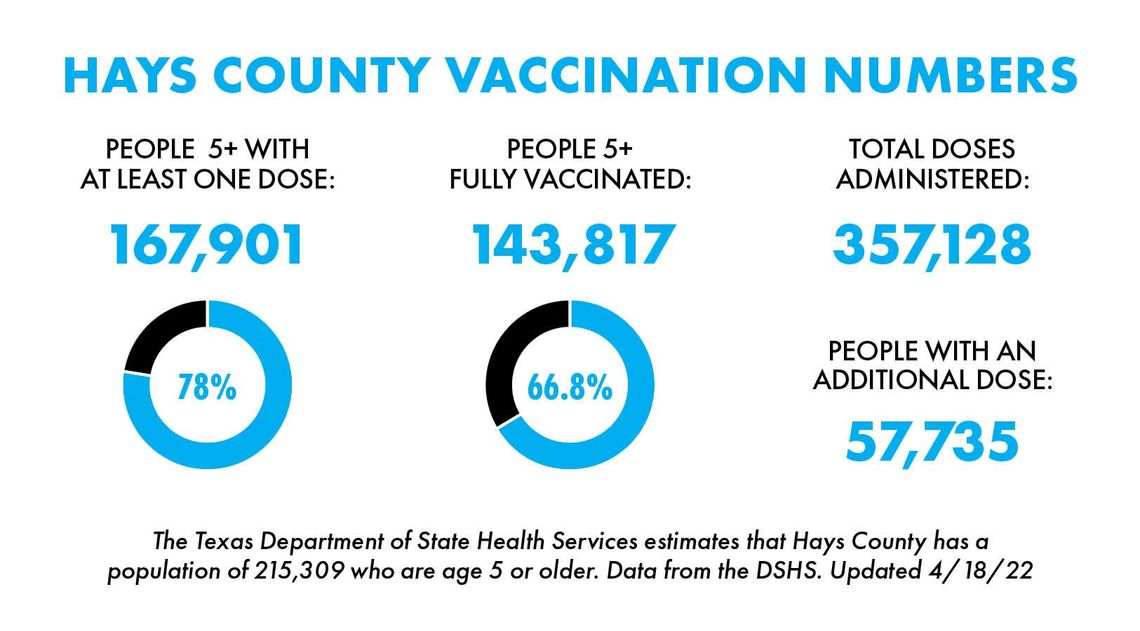A survey conducted by Texas State University professors found that COVID-19 vaccine hesitancy among young Hispanics was mainly caused by doubts regarding the vaccine’s effectiveness.
The survey conducted included 255 Texas residents aged 18-25 who identified as Hispanic. Initial survey results, which were released Thursday by the Texas Association of Mexican American Chambers of Commerce, found that doubts about vaccine effectiveness were higher among women than men surveyed.
“Previous studies from the Nielsen Consumer Research show that Latinas make a majority of health-related decisions in the household. This survey found they are more hesitant than males to get the vaccine for themselves or their children,” said Texas State Professor Jennifer Scharlach, who conducted the study along with Dr. Prisca Ngondo, and Dr. Vanessa Higgins Joyce.
Additional survey results show that there was a correlation between higher levels of education and vaccine hesitancy. Results also found that respondents said they equally gathered information from both English and Spanish-language sources but trusted news in English more. Approximately 43% of respondents were confident in taking the vaccine themselves, while only 32% felt comfortable giving the vaccine to children.
TAMACC said survey results become increasingly important as COVID-19 cases increase nationwide. According to the Kaiser Family Foundation, 65% of Latinos in Texas have been vaccinated.
“While Hispanics are getting vaccinated at a higher rate than non-Hispanics, there is room for improvement,” TAMACC said in a news release. “Especially when Latinos work in essential fields, are exposed at a higher rate, and have less access to quality healthcare.”
In Hays County, 169,110 residents have received at least one vaccine dose — approximately 78.5% of the 215,309 residents who are 5 years or older and eligible to receive a COVID-19 vaccine — according to the Texas Department of State Health Services. Additionally, 145,121 residents are fully vaccinated — 67.4% of eligible residents — while 60,046 residents have received at least one vaccine dose.
According to DSHS data, 49,379 Hays County residents who are Hispanic have received at least one vaccine dose — 29.2% of residents who’ve received one vaccine dose. Additionally, 40,857 Hays County Hispanic residents have been fully vaccinated, while 14,170 have received at least one booster dose.
Following Thursday’s data release, TAMACC said it will continue its campaign to fight COVID-19 with the use of Texas State’s research.
“We are not out of the woods yet,” TAMACC Foundation Chairman J.R. Gonzáles said. “We really need to get our community as close to 100% vaccinated as possible. We don’t want to go back to the death and social and economic destruction that the first two years of COVID brought.”
TAMACC said it will continue to publish more findings on its website. “We’re going to be releasing information throughout the summer,” Gonzáles said, adding that there would be additional research and message testing.
TAMACC added that the award-winning research conducted by Texas State found that family influence had more impact than the opinion of religious leaders or the politics surrounding COVID-19.
TAMACC’s vaccination efforts to get more Hispanics vaccinated, in coordination with Your Shot Texas, will continue throughout the summer and includes educational webinars in English and Spanish, presentations for chamber members and partners, PSAs for AM and FM radio, social media posts, podcasts, and an online toolbox with resources.
ncastillo
@sanmarcosrecord.com
Twitter:
@Nick_Castillo74
“We are not out of the woods yet. We really need to get our community as close to 100% vaccinated as possible. We don’t want to go back to the death and social and economic destruction that the first two years of COVID brought.” — J.R. Gonzáles TAMACC Foundation Chairman








